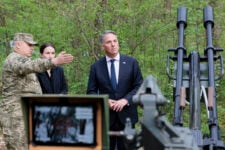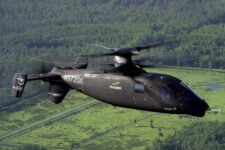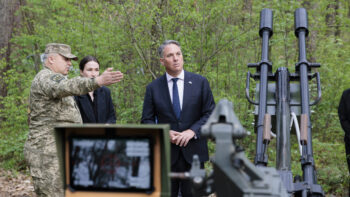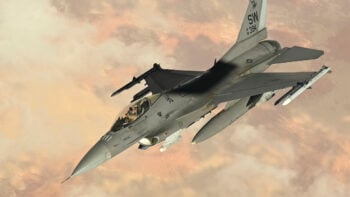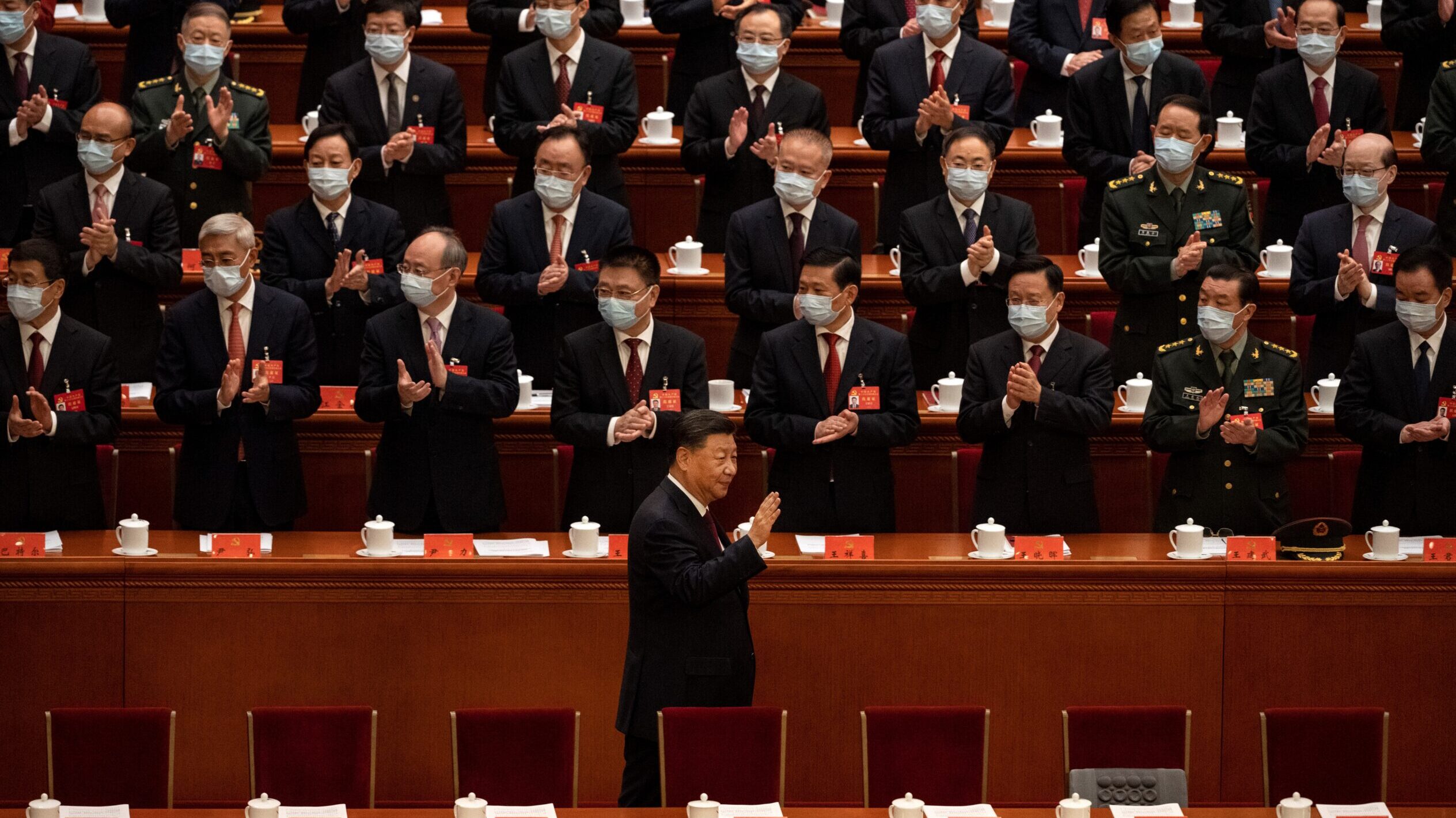
Chinese President Xi Jinping is applauded upon arrival at the 20th National Congress of the Communist Party of China on Oct. 16, 2022 in Beijing. (Kevin Frayer/Getty Images)
SYDNEY — This year was the first where I lived full-time as a resident of the Indo-Pacific. With that came a new understanding of the regional strategic threats and the people who would actually be affected by a major conflict.
The proximity of the Peoples Republic of China and its ability to send large numbers of ships and airplanes to threaten, harass and impinge on the open seas and skies — guaranteed by the law of the sea and hundreds of years of precedent — has been brought home in ways that otherwise feel academic while buffered by the Atlantic and Pacific oceans. That’s a good thing, not a bad thing, and I think the real reason why more outlets should invest in having reporters abroad in the region. Even though Sydney is, admittedly, not all that close to China, Beijing’s reach is palpable.
While China has rapidly built a much more modern military in a remarkably short time, it also faces enormous economic, demographic and national security challenges. And 2022 seems like the year it finally overreached in the region.
[This article is one of many in a series in which Breaking Defense reporters look back on the most significant (and entertaining) news stories of 2022 and look forward to what 2023 may hold.]
The July visit of US Speaker of the House Nancy Pelosi to Taiwan served as a great example of these dynamics. China is adept at information warfare compared to the United States; they are nimble, respond quickly and shape the environment before a crisis hits, having lots of talking points ready to go on endless repeat. Take Pelosi’s trip — although regional experts told us not to worry so much, China had its press team out in force, making it seem Pelosi’s visit was the flame to ignite World War III.
And yet, while China wanted to deter Taiwan’s friends from offering or providing diplomatic or military assistance, its missile and diplomatic barrages appear to have had the opposite effect, prompting even closer relations between the US, Australia, Japan, South Korea, Taiwan and Vietnam. China appears to be doing a good job of creating something like a pan-Pacific alliance, where almost every country in the region (and some far away, like Britain and much of NATO) now views them as a threat to actively manage and deter.
Another win for Taiwan against its larger cousin came through an unexpected source — the world’s reaction to Russia’s invasion of Ukraine, which had a much higher profile in the Indo-Pacific than some expected. Australia immediately moved to send hundreds of millions of dollars in aid, as well as cyber support, to Ukraine, and some 20 of the country’s highly regarded Bushmaster combat vehicles were on their way to Kyiv by early April. Japan mentioned Russia’s invasion of Ukraine as a key reason for doubling its defense spending, announced Dec. 16. (Russia and Japan, of course, have had a feud over the Kuril Islands since the end of World War II, so relations have often been frosty.)
Much of Asia worried that China might take Russia’s invasion of Ukraine as a pretext for invading Taiwan. But Russia’s poor showing against a much smaller and less well-armed country — one that Russia shares land borders with, unlike China and Taiwan — appears to have given Beijing a lot to chew on.
In China’s scorecard, they got one intriguing win (which may end up backfiring) when they got the leader of the Solomon Islands, Manasseh Sogavare, to sign a security pact. It’s secret and the prime minister says he won’t discuss it unless the Chinese give him permission, so we’re not positive what the final version says. But a draft released by Sogavare’s opposition appears to say it will grant Chinese military ships the right to call, repair and resupply there and to send troops and police in the event of instability.
RELATED: Red line or no, secrecy over China-Solomon Islands pact piques US suspicion
As so often with Chinese actions involving smaller countries, they are negotiated in secret and often spark accusations of corruption and lead to a backlash that appears to negate what China was trying to achieve. Since the Solomon’s agreement, Australia has signed a security treaty with Vanuatu and appears close to signing one with with Papua New Guinea. The United States came roaring in after the Solomon’s agreement was signed, announcing $810 million in assistance in late September for the far-flung islands Pacific and making the symbolic statement of a White House dinner with President Joe Biden. Since the US and Australian initiatives were announced, Sogovare has repeatedly said he will not allow a Chinese base on his island and considers Australia his country’s security partner of choice. We’ll see.
Domestically, a major theme for the year are the growing ties between Australia and its Indo-Pacific neighbors, Japan and South Korea. In a fashion few could have imagined before COVID struck, Japan and Australia are now very close allies. An extraordinary treaty signed by the two countries in January allows military forces from each country to train at each other’s bases and to collaborate on humanitarian missions.
At the annual Australian Ministerial meetings, held in Washington earlier this month, Australia and the United States also announced the extraordinary commitment “to invite Japan to integrate into our force posture initiatives” on the island continent.
South Korea has taken a high profile in its dealings with Australia, selling howitzers and supply vehicles, and hoping to sell more than 300 Infantry Fighting Vehicles. They even held a dinner with several hundred attendees, including influential Australians and senior Korean officials, touting a conventional sub they said could be delivered in seven years.
I’d like to include a note here thanking Australian colleagues Andrew Greene of the Australian Broadcasting Corporation, Kym Bergmann of the Asia Pacific Defence Reporter magazine and Gregor Ferguson, former Defense News correspondent here, for helping make Breaking Defense’s entry into Australia so much more effective.
